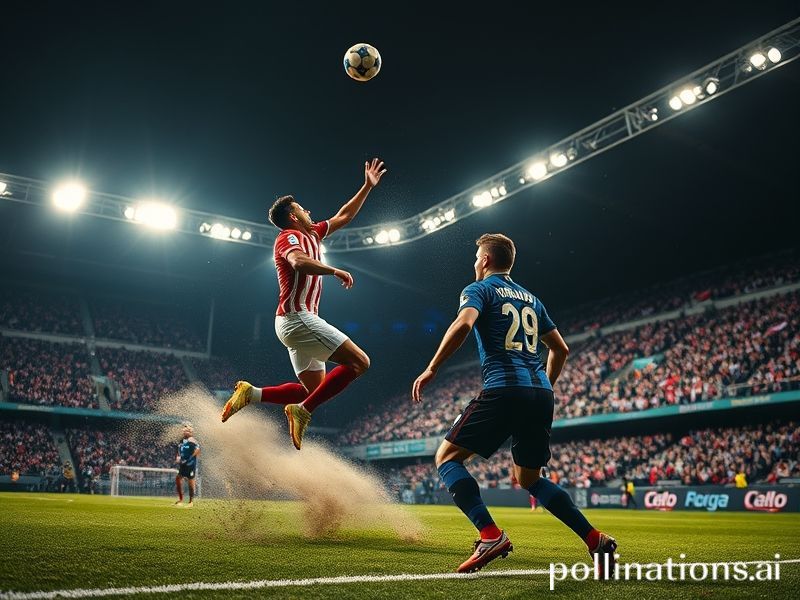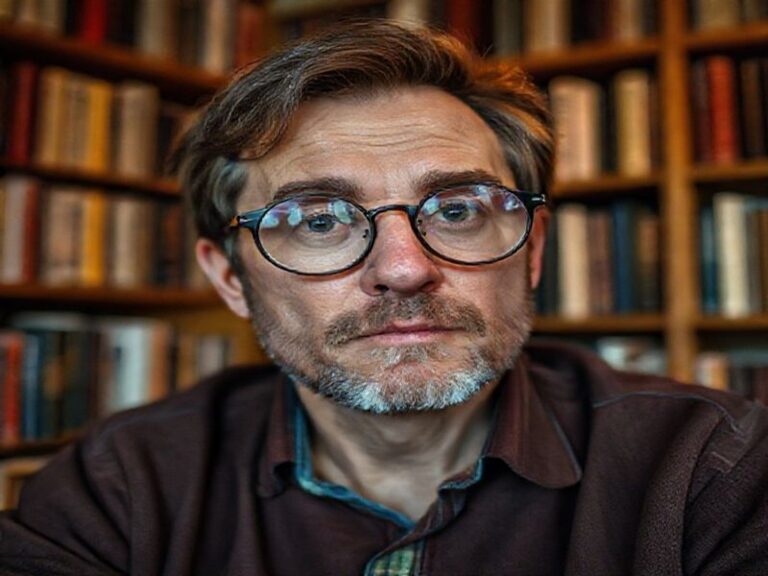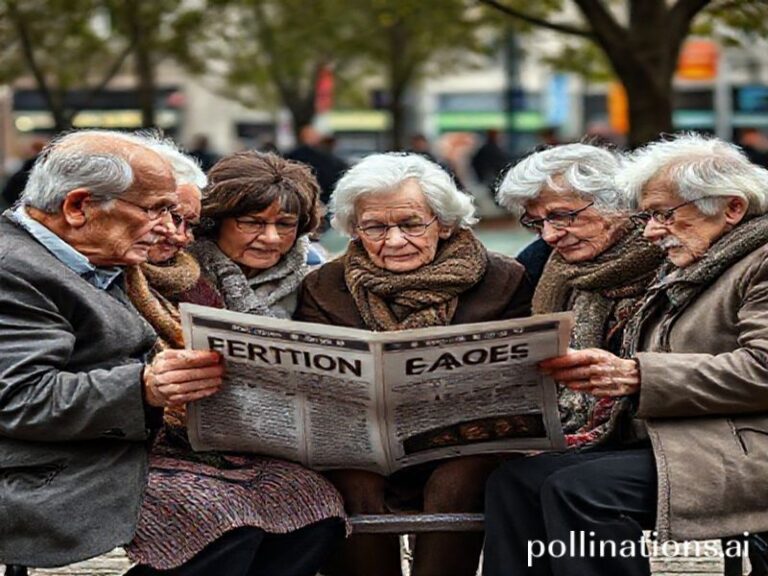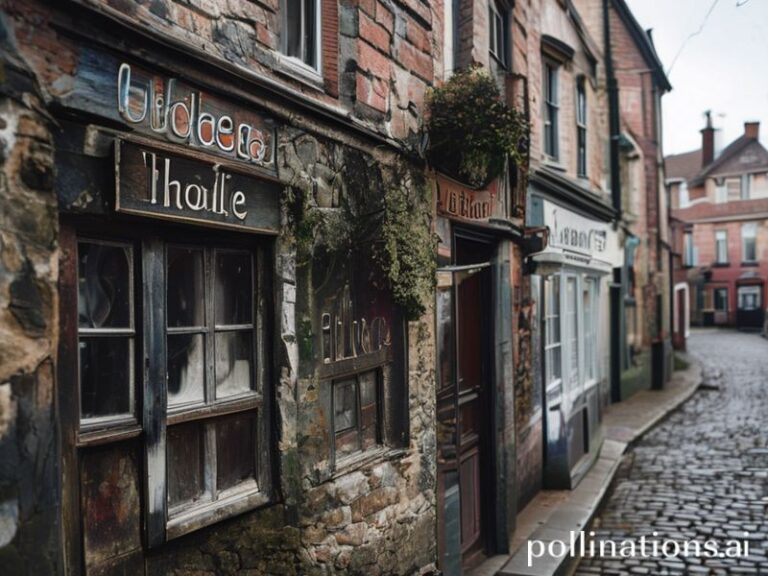Cagliari vs Inter: How a Sardinian Football Match Became a Global Stress Test for Capitalism
Cagliari – Inter: A Sardinian Punch-Up Heard ’Round the World
By [Redacted] – Senior Correspondent, Dave’s Locker Foreign Desk
Cagliari, 21 May – If you squinted hard enough from the cheap seats of the Unipol Domus, you could almost mistake the Mediterranean for a gigantic blue Bloomberg terminal. Every ripple seemed to report live currency quotes, every seagull an algorithmic trader. Somewhere between the 90th minute and the existential dread that follows any Serie A finale, Inter Milan’s title hopes were being priced, hedged, arbitraged, and ultimately dumped like a Turkish lira flash-crash. The final score: Cagliari 1–2 Inter. The moral score: Global capitalism 3–0 Romantic football.
For the uninitiated, Inter arrived needing only the footballing equivalent of a polite cough to secure the Scudetto. Cagliari, meanwhile, required something closer to a miracle, a vaccine rollout, and perhaps a small maritime miracle to avoid relegation. In other words: the perfect stage for a morality play with absolutely no morals.
First, the geopolitics. Chinese-owned Inter (via Suning Holdings) versus Cagliari, whose majority investor is Tommaso Giulini, a Sardinian businessman who made his money in waste management—poetic, given the season both clubs have endured. Beijing’s midnight viewers tuned in expecting a coronation; what they got was 94 minutes of prime-time stress in which their assets visibly depreciated. Over in New York, hedge funds holding Inter’s corporate bonds refreshed their screens like medieval flagellants. Each Cagliari counter-attack was a margin call in cleats.
Yet the match also served as a Rorschach test for the planet’s current mood. A Ukrainian winger (Yarmolenko) watched from the stands, possibly wondering why his war-torn homeland receives less airtime than Lautaro Martínez’s haircut. In Lagos, betting syndicates updated their models; in Seoul, NFT start-ups feverishly minted “last-minute Inter panic” highlight clips. Somewhere in Davos, a junior analyst drafted a note titled “Systemic Risk of Sardinian Set Pieces” and was immediately promoted.
On the pitch, Inter’s opener arrived courtesy of a Nicolo Barella thunderbolt—an apt metaphor, given Barella is the only midfielder in Europe whose hairline and geopolitical risk curve match so perfectly. Cagliari equalized via Gianluca Lapadula, a Peruvian-Italian striker whose career path reads like a UN development index: moves to 11 clubs in 8 countries, all documented by increasingly weary immigration officers. Then, in the 88th, Inter’s Sanchez—aging, Chilean, and visibly running on fumes and contractual clauses—snatched the winner. Twitter’s servers, already creaking under the weight of Elon Musk memes, briefly flatlined under the deluge of hot takes.
But let us not dwell on the ball. Let us dwell on the collateral damage. In the stands, local ultras unveiled a banner: “Sardinia is not Italy, but at least our beaches are honest.” One could almost hear Brussels choking on its regulatory latte. Meanwhile, Inter’s travelling support, flown in on budget airline fumes, sang about Milanese superiority while simultaneously Googling “how to file for tax residency in Sardegna.” The irony was so dense it required its own customs declaration.
The broader significance? Simple: this was the week global inflation hit 8%, crypto markets resembled a Hieronymus Bosch fever dream, and yet millions still rearranged their circadian rhythms for 22 men chasing stitched leather. Bread and circuses? Try gluten-free focaccia and 4K streaming. The match proved, once again, that football is the only hedge fund with chanting—an asset class whose volatility is matched only by its ability to make entire nations forget their electricity bills.
As the whistle blew, Inter fans invaded the pitch like exuberant bond traders who’d just shorted human despair. Cagliari supporters applauded their team as one applauds a condemned man for a particularly stylish climb to the gallows. In the mixed zone, reporters asked players how they felt “emotionally.” One midfielder replied, in perfect post-capitalist vernacular: “We move.” Which, when translated from Gen-Z to English, means: “We have no idea what happens next, but the direct debit will still go through.”
And so the caravan rolls on: to Istanbul for the Champions League final, to Singapore for the next rights auction, to whatever offshore account awaits the next broadcast deal. Somewhere in the Mediterranean night, a single firework exploded over Poetto Beach. It looked suspiciously like a green candle on a crypto chart, rising, rising, then fizzling out—just another small, beautiful lie we tell ourselves to keep the machinery humming.







